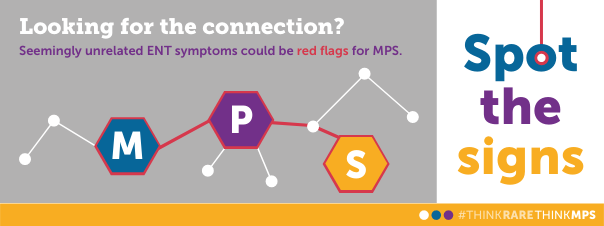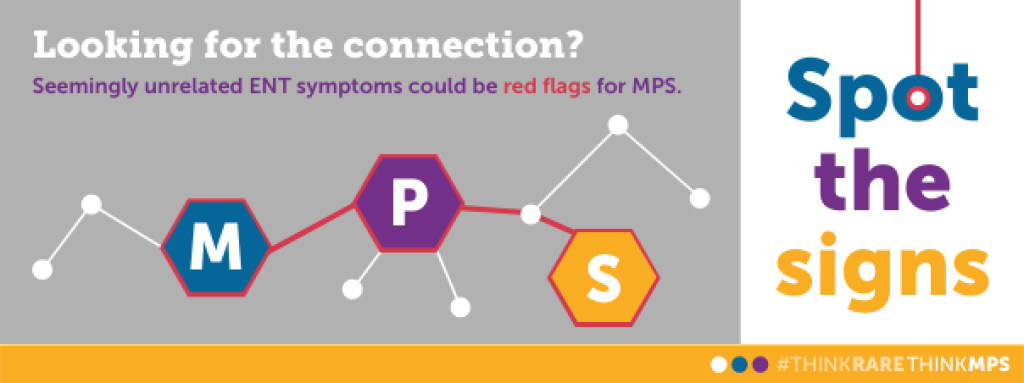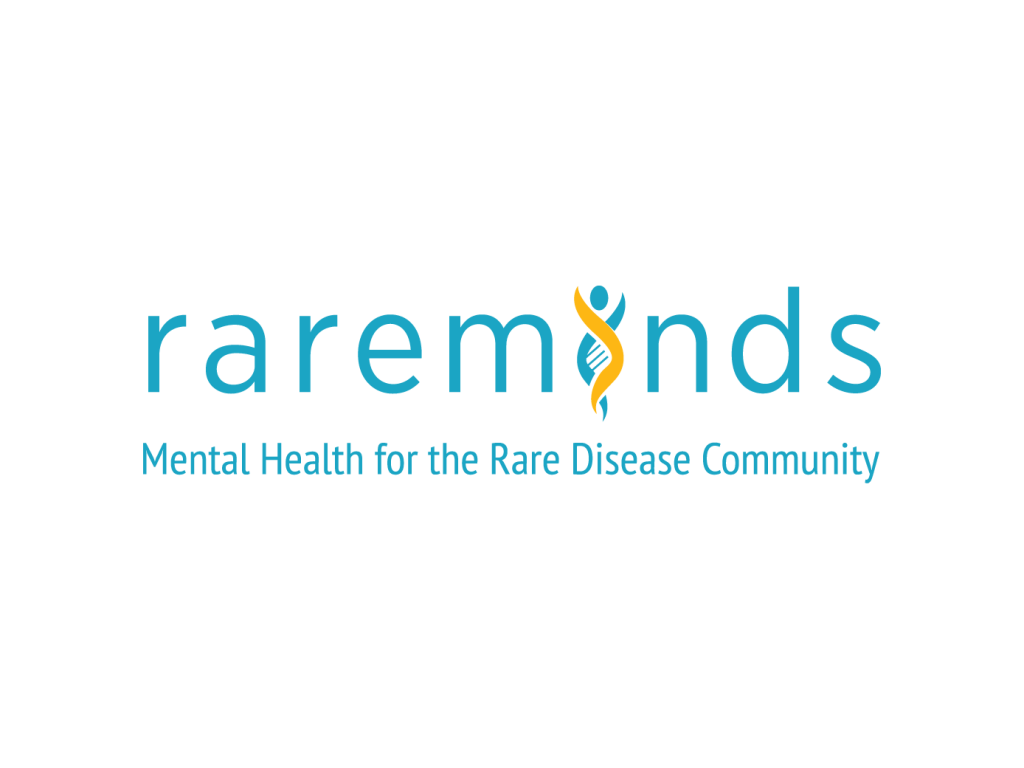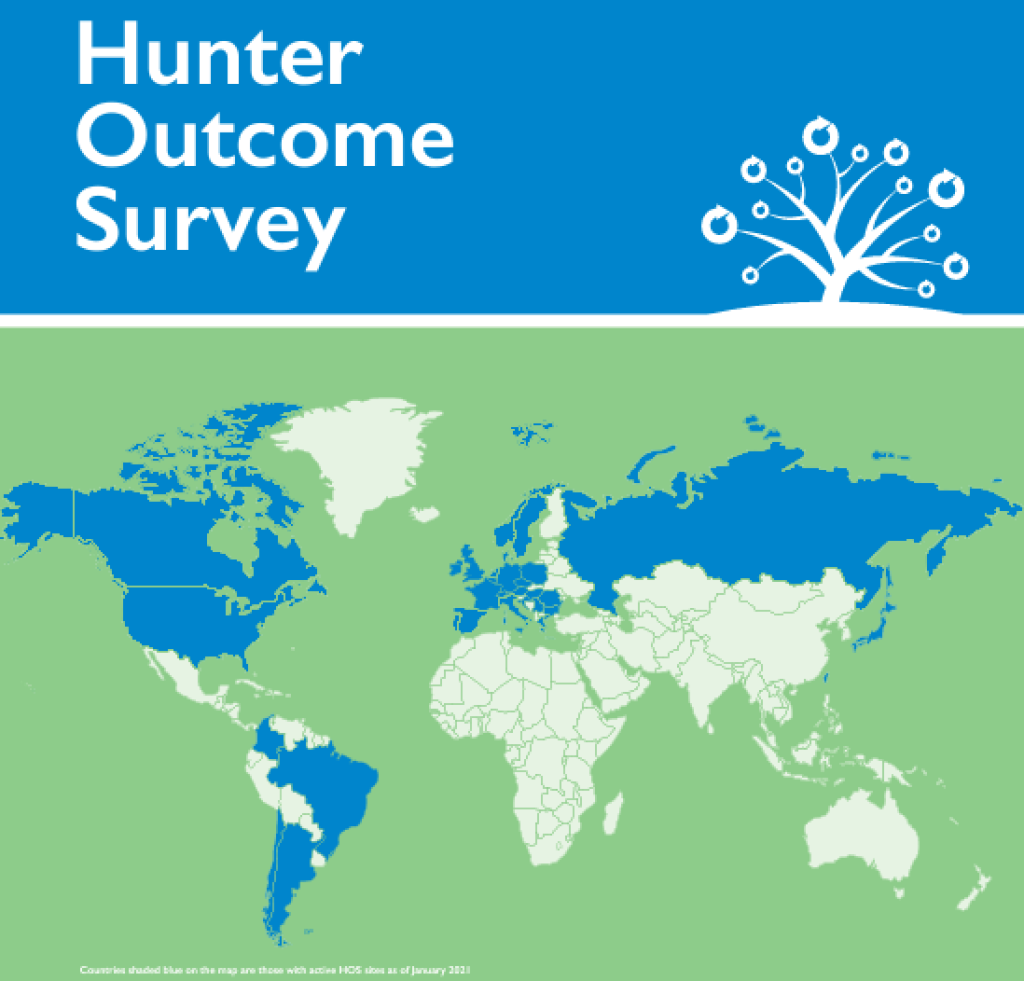The Society for Mucopolysaccharide Diseases (MPS Society) is committed to bringing about change in the diagnostic journey of children affected by these rare conditions. The Think Rare, Think MPS programme supports earlier recognition of the signs and symptoms of MPS diseases by engaging with and educating the healthcare professionals most likely to see a patient with MPS in the early stages of the disease.

Why do we need to think rare?
The time to diagnosis in the UK for MPS diseases is variable and individuals can be left waiting for many years. A recent review of diagnosis data held by The MPS Society showed that 30% of patients were still without a diagnosis by the age of five (1).
Why are patients left waiting so long for a diagnosis?
There are over 6000 known rare diseases and health care professionals will not be aware of all of them (2). Additionally, early symptoms of MPS diseases can be non-specific and therefore not recognised as a sign of MPS. As a result, opportunities to make a diagnosis can be missed, or misdiagnosis can occur. This is where the patients’ diagnostic odyssey starts. Referral patterns of MPS Society members showed that patients were seen by up to 13 different health care practitioners (HCPs) before diagnosis, the average number was between five and six (3).
What does this mean for our patients?
The diagnostic delay faced by MPS patients’, and their families have a wide-ranging impact.
Delays to starting disease-modifying treatments:
· For conditions where a disease-modifying treatment is available, the later the diagnosis the longer the delay in starting treatment
· Some current (and potential future) treatments have age cut-offs, it is important to diagnose patients early in order to be eligible for these disease-modifying treatments
· MPS diseases are progressive, the earlier treatment starts the better the outcome for the patient
Unnecessary interventions
· Patients who are diagnosed early will be less likely to face invasive investigations
· Patients who are misdiagnosed may receive care for a condition they do not have
Families
· MPS diseases are genetic, and the earlier a diagnosis happens the sooner the family can be screened and access genetic counselling
· Numerous referrals to different specialists take their toll on emotional health, parents will feel the stress and concern of not knowing what is wrong with their child
How can the Think MPS programme change this?
The Think Rare, Think MPS programme provides free learning resources for health care professionals. These educational resources are produced in coordination with metabolic disease specialists and the MPS Society with the aim of bridging knowledge gaps in the clinical specialisms most likely to see a patient with an MPS disease. The programme will have resources for all clinicians who would like to further their knowledge on MPS as well as tailored courses for individual specialisms, with the first spotlight on Ear, Nose and Throat (ENT) clinicians.
Why ENT?
More than 90% of MPS patients have head and neck manifestations (4,5). One of the first signs of MPS is often recurrent ear and upper respiratory infections and many patients will have their tonsils and adenoids removed (3). ENT specialists are therefore often among the first specialists to see a child with MPS. Whilst we want to encourage clinicians from all specialities to think MPS, starting with ENT was the logical choice.
What resources do you have available for clinicians?
To help you spot the signs of an MPS disease, you can find information here on each condition. For further information and webinars please click here.
For ENT Clinicians: Our series of short online courses will focus on breaking down the key information on these complex diseases, with learnings that can be put into practice in a clinical setting. After taking part in the Think MPS programme you will be able to spot the signs of an MPS disease and have the tools to identify potential red flags during your patient appointments. We will provide the link to the online course as soon as it's available.
Will this count towards our continued professional development?
The diagnostic delay faced by many MPS patients is an unmet public health need and one that we are passionate about addressing and improving, however, we recognise that clinicians are increasingly stretched for time and have many well-intentioned patient groups and campaigns vying for their time. This is why we are offering continued professional development (CPD) points on a select number of our online resources. Our first CPD accredited course is being planned and will be made available online soon. If you would like to receive updates on this, please click here.
How do I find out more?
To keep in the loop with the latest Think MPS resources, you can sign up to receive our mailings here. We will contact you when new resources are published and to let you know occasional updates about the Think MPS campaign. If you have a particular question about MPS and would like to speak to one of the MPS Society team you can contact our team here.
References
1. Morrison A, Wiseman S, Cotterell S, Thomas S, Cleary L. (2021). Diagnosis of Mucopolysaccharidoses in the UK.
2. Nguengang Wakap, S., Lambert, D.M., Olry, A. et al. Estimating cumulative point prevalence of rare diseases: analysis of the Orphanet database. Eur J Hum Genet 28, 165–173 (2020).
3. Gadepalli, Chaitanya & Bruce, I. (2021). Mucopolysaccharidosis and the ENT Specialist.
4. Kiely BT, Kohler JL, Coletti HY, Poe MD, Escolar ML. Early disease progression of Hurler syndrome. Orphanet J Rare Dis. 2017;12:32. DOI: 10.1186/s13023-017-0583-7.
5. Guffon B, Heron B, Chabrol B, Feillet F, Montauban V, Valayannopoulos V. Diagnosis, quality of life, and treatment of patients with Hunter syndrome in the French healthcare system: a retrospective observational study. Orphanet J Rare Dis. 2015;10:43.



